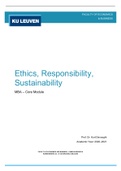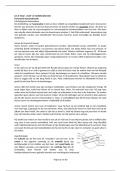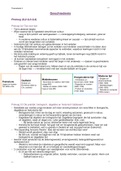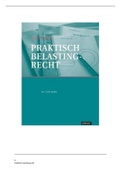Summary
Ethics Responsibility & Sustainability: Summary + Class notes (MBA - KUL Brussels)
- Course
- Institution
ENGLISH SUMMARY FOR MBA PROGRAM at KUL Prof.: Dr. Kurt Devooght Textbook: Hartman, L., DesJardins, J. & MacDonald, C, Business Ethics. Decision Making for Personal Integrity & Social Responsibility, McGraw-Hill, Fourth Edition, 2018 This document contains a summary of the course content + clas...
[Show more]






